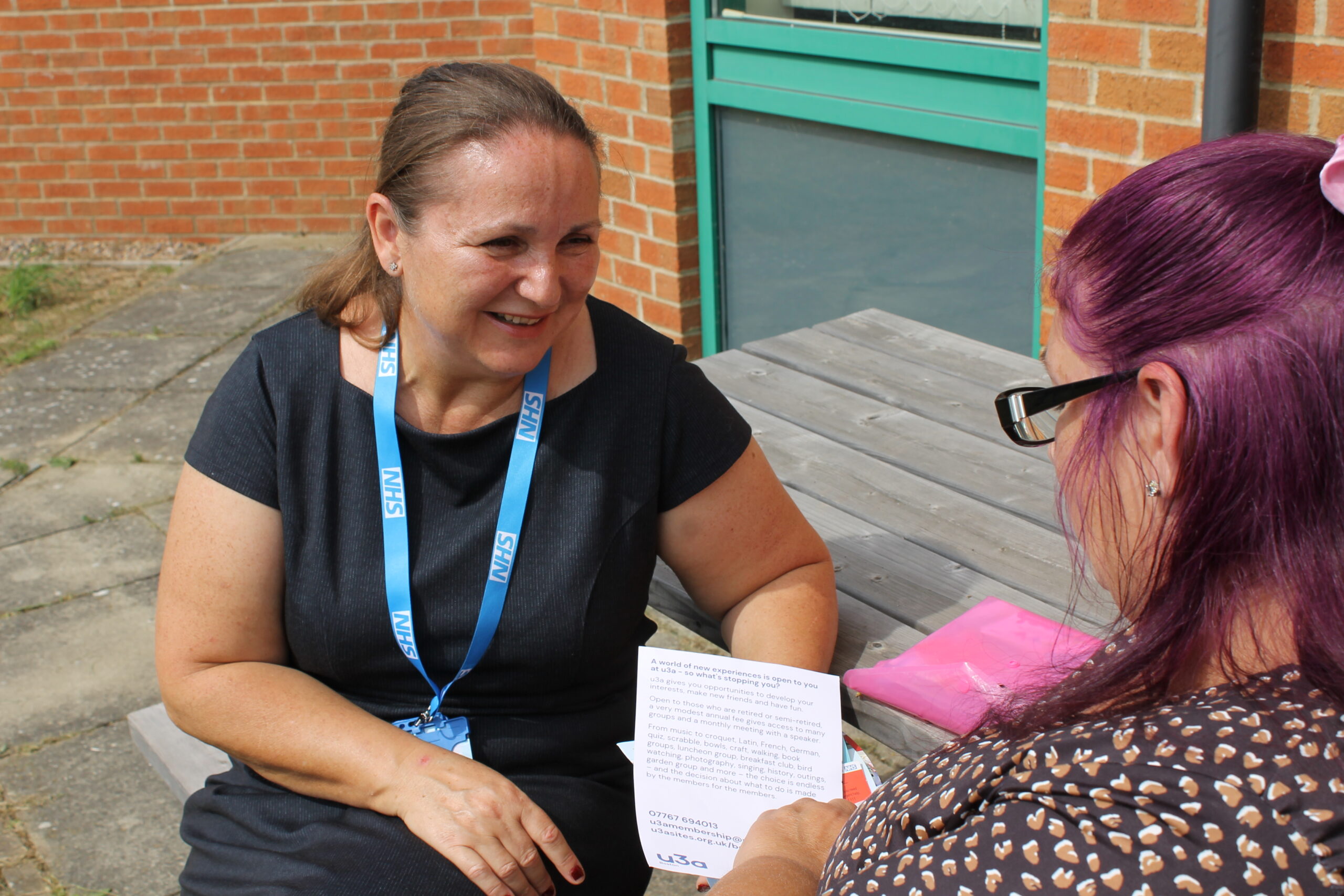Social prescribing helps people improve their health and wellbeing by linking them to non-medical support in their community. Link workers, like Elena O’Callaghan, take the time to understand “what matters” to each individual and guide them towards local activities, services, and groups that can make a real difference.
From village life to community advocate
Elena grew up in a small village where life was well below the poverty line, but what she remembers most is the strength of community spirit.
“I learned early on that a connected community can completely change someone’s life,” she says. “It reduces loneliness, builds self-esteem, and gives people a sense of belonging.”
She moved to the UK in 1997 and soon made Boston her home, drawn by its history and welcoming community.
Discovering social prescribing
Elena first came across social prescribing in May 2018, while working for Lincolnshire Community and Voluntary Service.
“It was a ‘Eureka’ moment,” she recalls. “I knew this could have a huge impact on people’s health and wellbeing.”
Soon after, she became Boston’s first link worker. Starting from a proof-of-concept stage, she worked closely with GP practices, contributed to the development of the Social RX digital platform, and built strong connections with local groups and services helping to shape the service from the ground up and inspiring both her community and future healthcare professionals.
A quote from Maya Angelou has shaped her work ever since:
“People will forget what you said, people will forget what you did, but people will never forget how you made them feel.”
Case study: a powerful transformation
One of Elena’s most memorable cases is TS, who had a stroke that left her with reduced mobility and dexterity. Unable to drive and out of work, TS spent nine months isolated at home.
“With gentle encouragement and motivational conversations, I helped her try public transport again,” says Elena. “We went on bus journeys together, and I took her to craft groups until she felt confident to go alone.”
Knitting and using a computer mouse improved TS’s dexterity, while social contact boosted her confidence. During the pandemic, Elena encouraged TS and others to form an online peer support group, helping them set up as a structured organisation, secure funding, and stay connected. TS became a committee member, and the group is still going strong today.
Inspiring the next generation
Elena has twice presented to Year 2 medical students at Lincoln University Medical School, accompanied by two former participants—including TS. Their stories made such an impact that social prescribing is now part of the medical curriculum.
“It was amazing to see the students so engaged,” Elena says. “I could tell they really understood the value of social prescribing.”
A career highlight
For Elena, the role is more than just a job.
“Without doubt, working as a social prescribing link worker is the highlight of my career,” she says. “It’s the best job I’ve ever had.”
How to access social prescribing
If you would like to be referred for support, you can speak to your GP practice team.
You can also contact:
Lincolnshire Community and Voluntary Partnership
Website: Lincolnshire Community And Voluntary Partnership | LCVP
Email: vcs.socialprescribing@nhs.net
Phone: 01522 551683
Find out more about how social prescribing works across England here:
NHS England – Social Prescribing
